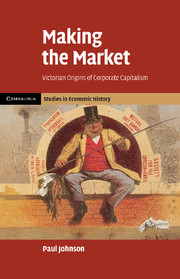1 - Mammon's cradle
Published online by Cambridge University Press: 06 July 2010
Summary
True, it must be owned, we for the present, with our Mammon-Gospel, have come to strange conclusions. We call it Society; and go about professing openly the totalest separation, isolation. Our life is not a mutual helpfulness; but rather, cloaked under due laws-of-war, named ‘fair competition’ and so forth, it is mutual hostility. We have profoundly forgotten everywhere that Cash-payment is not the sole relation of human beings; we think, nothing doubting, that it absolves and liquidates all engagements of man. ‘My starving workers?’ answers the rich mill-owner: ‘Did I not hire them fairly in the market? Did I not pay them, to the last sixpence, the sum covenanted for? What have I to do with them more?’ – Verily Mammon worship is a melancholy creed.
Thomas Carlyle, Past and Present (1843)When the citadels of capitalism started to quake and crumble in September 2008, the race began to find someone or something to blame. The venal investment bankers who put personal gain before financial prudence, the complacent regulators who ceded to markets their fundamental responsibilities, the conceited hedge-fund managers who thought they could diversify all risk to the nth degree and beyond, the reckless traders whose short selling corroded value and rendered fragile that which should be secure – these were the characters who populated the dystopia of global financial crisis.
- Type
- Chapter
- Information
- Making the MarketVictorian Origins of Corporate Capitalism, pp. 1 - 30Publisher: Cambridge University PressPrint publication year: 2010



